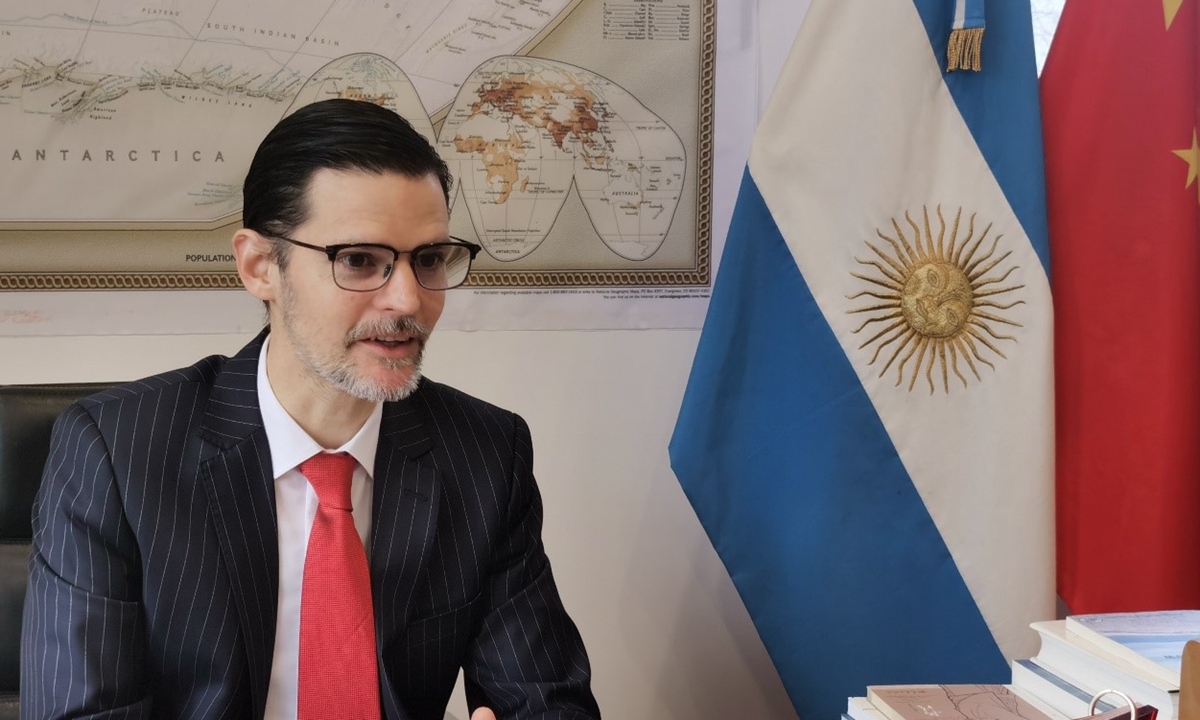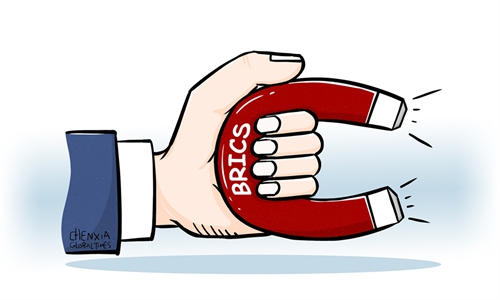Argentina’s Ambassador to China expresses gratitude for BRICS inclusion

Argentina Ambassador to China Sabino Vaca Narvaja Photo: Hu Yuwei/GT
After the announcement that Argentina is to become a new BRICS member, Argentina’s Ambassador to China Sabino Vaca Narvaja told the Global Times on Thursday that the country thanks China and the other BRICS countries for their support in the process.
“We are really very happy that this process is accelerating, so I want to thank China and all the BRICS countries for their support,” Narvaja told the Global Times in an exclusive interview.
At a press conference during the 15th BRICS Summit in Johannesburg, South Africa, six countries – Argentina, Egypt, Ethiopia, Iran, Saudi Arabia and the United Arab Emirates – were invited to become new BRICS members on Thursday.
Narvaja noted that until the enlargement announced today, the BRICS represented almost a third of the world economy, almost half of the world’s population and 30 percent of the global territory. Also, in recent years, the BRICS countries have contributed more than 50 percent of global growth.
“If one sees the countries that are joining, such as Argentina, and the more than 40 that want to do so, this expanded group is going to become one of the most important spaces worldwide. Together we are going to represent the voice of emerging countries, which have historically been neglected in international organizations,” he said.
Before the BRICS summit, more than 40 countries had expressed interest in joining, and nearly two dozen have formally asked to be admitted, Reuters reported.
Observers noted that BRICS expansion could greatly enhance the role of the organization in global governance and contribute to building a more equitable world order.
Narvaja also highlighted the role of the New Development Bank during the interview. He said that the New Development Bank of the enlarged BRICS is going to become the most important instrument to change the global financial architecture, so that it is oriented towards the productive system, and not to the financial speculation system.
That will be the best way to generate well-being and prosperity, Narvaja noted.
“Besides, the proposal to use their own currencies for investment and trade between their partners will play a determining role in the world economy,” he said.
“We expect the NDB to provide and maintain the most effective financing solutions for sustainable development, a steady process in membership expansion, and improvements in corporate governance and operational effectiveness towards the fulfilment of the NDB's General Strategy for 2022-2026,” said the 15th BRICS Summit Johannesburg II Declaration.
“We welcome the three new members of the NDB, namely Bangladesh, Egypt and the United Arab Emirates. We encourage the NDB to play an active role in the knowledge sharing process and incorporate the member-countries’ best practices in its operational policies, according to its governance mechanism and taking into account national priorities and development goals,” it said.
It also noted that finance ministers along with central bank governors of BRICS countries would consider the issue of local currencies, payment instruments and platforms.
The Argentine diplomat noted that the BRICS have great potential because they have strategic mineral and energy reserves and are large food producers. They have also enormously increased their technological capabilities and they have the majority of the world’s population.
“The strengthening of the BRICS is essential for the development of the countries of the Global South. I believe that this mechanism represents countries that have the same problems and the same needs, which is why it will be easier to work together to strengthen our development,” Narvaja said.
“Expanding this mechanism is key to building a more harmonious global order where cooperation replaces confrontation,” he said, along with “mutual respect rather than unilateral interventionism; economic integration, instead of anachronistic sanctions; and the transfer of technology, instead of technological blockades.”

